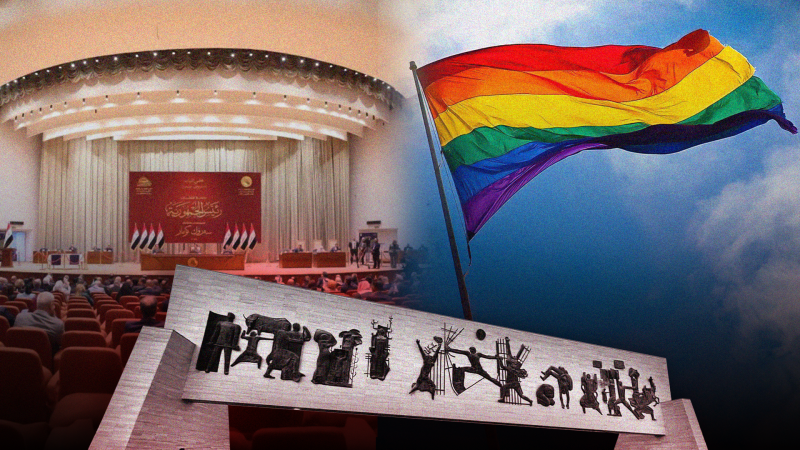Springer, one of the world's top ten academic publishers, has published a major new book by Kurdish scholar Dr. Bahrooz Jaafar: 'Middle East Geopolitics and the Rise of Multipolarity: A Global Turning Point'.
The book is available in English via over 7,000 institutions and libraries worldwide, and readers in more than 180 countries can access it. It can be found on major global platforms, including Amazon, Barnes & Noble, Bookshop, Indigo, Lehmanns Media, Orell Füssli, Lateknightbooks, Yes24, Bookline, Google Books, and others. Spanning 198 pages, this work examines the global shift from a unipolar to a multipolar world order, as well as the growing influence of non-state actors and technology giants, particularly artificial intelligence, in reshaping international relations.
The opening chapter shifts focus from an undefined phase between multipolarity and non-polarity to key geopolitical actors. It highlights China’s expanding soft power via the Belt and Road Initiative, the rising influence of “middle powers,” and the widening rifts between blocs such as NATO and BRICS. As US–China trade ties decline, Dr. Jaafar argues that the Middle East will become pivotal to global transformation.
Springer's publication of this book underscores its academic importance. Founded in Berlin in 1842, Springer now operates in over 40 capitals, ranks among the world’s top publishers, and maintains rigorous scientific, engineering, medical, and social science standards.
Bahrooz Jaafar, born in Chamchamal in the Kurdistan Region, earned his PhD in International Political Economy and founded the Mediterranean Institute for Regional Studies (MIRS), where he serves as president. He brings over 18 years of experience in energy security and Middle Eastern affairs, and international journals and media frequently cite his work. His previous book, Deciphering the Eastern Mediterranean’s Hydrocarbon Dynamics (2024), reaches readers in 140 countries.
The New Region conducted an exclusive interview with Jaafar, discussing his book's contents and its central message.
The New Region (TNR): What is your book’s main focus and intended audience?
Bahrooz Jaafar: The publisher will release the book in October, and global book platforms now offer it for preorder. The book targets policymakers worldwide and postgraduate students in international relations, global politics, and economics. It explores how the world is shifting away from unipolarity—once dominated by a single superpower—and toward a system with multiple global players.
I closely examine the rise of China and the growing roles of 'middle powers' such as Saudi Arabia, India, and Turkey. I also explore the influence of technology companies, particularly in the realm of artificial intelligence. These forces are redefining the international order in ways that traditional power politics alone cannot explain.
The Significance of China
TNR: You devote considerable attention to China. Why is its rise so significant?
Jaafar: China’s rise is extraordinary. The book devotes two major chapters to it, focusing on the Belt and Road Initiative. Between 2013 and 2023, Chinese investment across Asia, the Middle East, and Europe was around $6.5 trillion.
Unlike many Western states that rely on neorealist theory in international relations and hard power strategies, China prioritizes soft power. This different approach is equally transformative. The Belt and Road Initiative, in particular, is reshaping the Middle East’s global power balance.
China is the story for now and the future, according to my book.
The Role of Middle Powers
TNR: You also highlight “middle powers.” How do you define them, and why do they matter?
Jaafar: During the Cold War, the world was divided into two blocs: the Soviet Union and the US-led liberal order. Today, the landscape is more complex. Middle powers—such as Saudi Arabia, India, Brazil, Turkey, Iran, Israel, and South Africa—are not superpowers, but they are crucial in shaping global politics.
They rank below great powers but above weaker states. This gives them flexibility and influence. Their decisions—especially in the Middle East—will help define the new multipolar order.
Challenges for the Middle East
TNR: How do you assess the future balance of power in the Middle East?
Bahrooz Jaafar: The Middle East is at the heart of global change. Israel speaks of a 'new Middle East,' but the reality will depend on the interplay of regional and global powers. In my analysis, the region faces four major challenges:
1. Environmental crises, particularly desertification and water scarcity.
2. Migration flows linked to instability and climate change.
3. The rise of drug trafficking networks.
4. Corruption and reliance on compromised local elites by outside powers.
Meanwhile, Iran, Turkey, Israel, and Saudi Arabia all compete for dominance. As US influence evolves and China expands, the region’s power balance will shape the global system.
The debate on de-dollarization
TNR: Your book also explores de-dollarization. What are your conclusions?
Jaafar: One of the book’s central themes explores the debate on de-dollarization, particularly within BRICS. Many states seek alternatives to US financial dominance. However, in the near term, the dollar will remain the world’s reserve currency.
The momentum behind de-dollarization reflects dissatisfaction with American hegemony. The US and its allies can either reform their influence or resist change. Their response will shape the next phase of the international order.
The five founding BRICS members—Brazil, Russia, India, China, and South Africa—expanded the group by 2024 to include Egypt, Ethiopia, Iran, and the United Arab Emirates. Saudi Arabia also participates in BRICS activities, though it has not officially joined. Together, these ten nations account for 35.6 percent of global GDP in terms of purchasing power parity (PPP) and represent 45 percent of the world’s population. Looking ahead, over 40 countries, including emerging powers such as Indonesia, have expressed interest in joining BRICS, indicating that further expansion is likely.
A larger de-dollarization coalition could form, especially as participants in the dollar system become increasingly frustrated with international circumstances. The Federal Reserve’s decisions, combined with unpredictable policies of the US administration, can fuel discontent. BRICS, seeing this opening, seeks to lead emerging markets in reshaping the global financial system. The group has already developed alternative routes for aid and economic development, striving to create a framework that better aligns with their interests.
Emerging powers aim to elevate their status, seeking not just greater influence but also a role as architects of global finance. As Western nations shift their focus back to the global market and cooperate with moderate emerging powers, they strengthen their standing and weaken China and Russia’s efforts to rally the Global South against the West. Instead of viewing BRICS’ rise as a looming threat, the West might find it more strategic to engage member states interested in ensuring the group does not become overtly anti-Western or seek to dismantle the global order.
Energy, technology, and the future
TNR: How do you connect energy to geopolitics?
Jaafar: Energy has always shaped global politics. The Middle East’s oil and gas have brought both strength and instability. Too often, resource wealth fuels corruption instead of promoting state-building or democratization.
The future will be shaped by the shift to renewables. Gulf states are investing heavily in green technologies and artificial intelligence. These commitments now total over $1.2 trillion. This shift will be as transformative for power as oil once was.
The Middle East’s oil and gas wealth has not led to the development of strong democratic institutions. Weak state structures often turn energy riches into instability and corruption. Iraq illustrates this dilemma, as it has not effectively channelled resource revenues into institution-building or development.
The region sits between the Global North and Global South. Approximately 75 percent of Iraq’s oil is exported to Asian economies, including China, India, Japan, and South Korea. This makes the Middle East pivotal in global power shifts.
At the same time, the world is transitioning from hydrocarbons to renewable energy sources like hydrogen, wind, solar, and hydropower. Gulf states are positioning themselves at the forefront of this change, investing in green energy and artificial intelligence to shape both the regional and global order.
Unresolved questions
The New Region: Does your book address the Palestinian and Kurdish questions?
Jaafar: Yes, though indirectly. The book addresses broader geopolitical shifts but notes that unresolved issues, such as Palestinian statehood and Kurdish aspirations, still matter for regional stability.
China avoids deep involvement in these disputes, focusing instead on its economic interests through the Belt and Road Initiative. By contrast, Western powers tend to frame them within the framework of realist power politics. These conflicts will continue to shape the region’s trajectory.
A global turning point
TNR: What is the central message you want readers to take away?
Jaafar: The world is at a genuine turning point. We are moving away from an era dominated by a single superpower towards a system shaped by multiple states, regional powers, and even non-state actors such as technology companies.
The Middle East—with its energy resources, strategic location, and unresolved conflicts—will be one of the most important arenas in this transformation. Understanding these dynamics is essential not only for the region but also for the future of the global order.
This book offers a concise guide to twenty-first-century power politics. It clarifies how China’s rising influence, ambitious middle powers, the de-dollarization debate, and energy and climate challenges are shaping today’s complex multipolar world. It gives readers practical insights for navigating these changes.
Jaafar's book can now be purchased in 180 countries, with prices ranging from €120 to €307, depending on the region.



 Facebook
Facebook
 LinkedIn
LinkedIn
 Telegram
Telegram
 X
X
